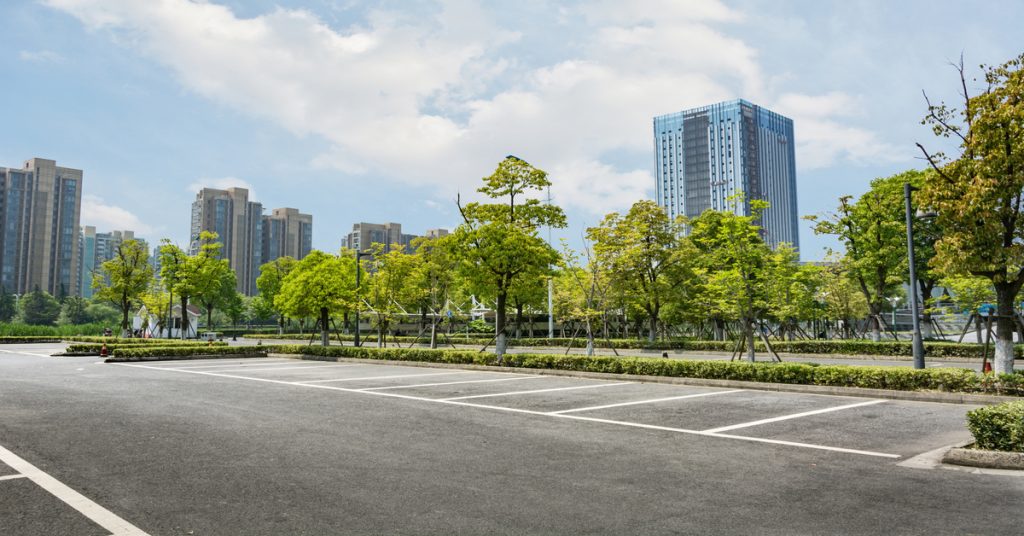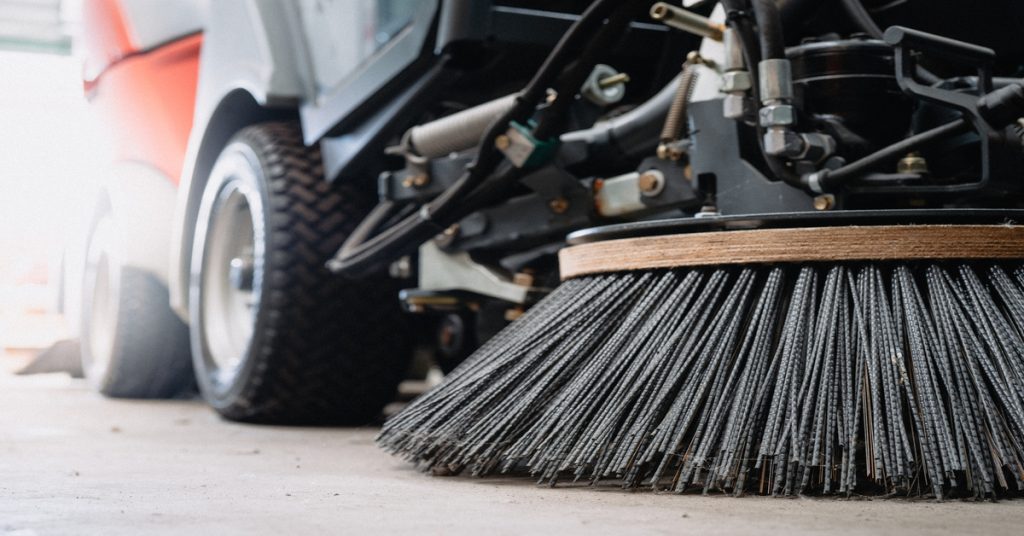The roads you drive on every single day are an important part of the local community. However, if they’re not properly maintained, those streets can accumulate debris that harms the environment.
Street sweeping is essential to preventing problems such as polluted waterways and flooded cities. There are many environmental benefits of street cleaning that influence the health of local ecosystems, the cleanliness of urban spaces, and the quality of air and water around us.
1. Decreases Bacteria Buildup on the Street
Streets can accumulate a surprising amount of harmful substances, from oil and exhaust emissions left behind by vehicles to animal waste. These materials create the perfect breeding ground for bacteria, especially when combined with stagnant water from rain or irrigation runoff, particularly in areas with poor drainage.
Over time, this buildup not only harms the environment but can also spread dangerous pathogens into nearby ecosystems. Street cleaning addresses these issues by removing vehicle pollutants, animal waste, and other debris that contribute to bacterial growth. Keeping streets clean helps maintain safer and healthier urban environments.
2. Removes Toxic Substances From Roads
Roads accumulate harmful substances such as motor oil, heavy metals, deicing chemicals, and other debris from vehicles. These pollutants don’t just stay on the surface—they can run off into nearby soil and water sources, contaminating the habitats where local wildlife lives and feeds.
Without regular street cleaning, those toxins remain exposed, putting animals at risk of poisoning or long-term health issues. For instance, runoff containing oil and chemicals can seep into areas where animals graze, harming their food sources and damaging the ecosystem.
A professional street sweeping service takes on the vital task of removing these hazardous substances efficiently. Street cleaning prevents harmful chemicals from leaching into the soil where animals graze, creating a safer environment for wildlife to thrive.
3. Minimizes Contaminants on Nearby Plants

The vegetation near roads and streets does more than just enhance the aesthetic appeal of a neighborhood. Trees, plants, and grass contribute to the environment by purifying the air, stabilizing the soil, and supporting local ecosystems. When streets are left uncleaned, pollutants such as microplastics, salt, and oil residue can seep into the surrounding land, harming plant life.
Contaminants from roads may damage delicate plant roots, discolor foliage, and stunt overall growth. Worse yet, grazing animals that rely on nearby grasslands may inadvertently ingest these harmful residues, which can have broader implications for the local ecosystem.
Street cleaning protects plant life by clearing away debris and contaminants before they can cause harm. This preserves greenery and ensures that local flora continues to function as a vital environmental asset.
4. Improves the Air We Breathe
Dust, debris, and other fine particles often accumulate on roadways and don’t stay in place for long. Passing cars and strong winds can stir these particles into the air, leading to reduced air quality throughout the community.
This is especially concerning for individuals with respiratory conditions such as asthma, allergies, or chronic obstructive pulmonary disease (COPD). Airborne particles can irritate the lungs, worsen symptoms, and lead to more serious health issues over time.
Street cleaning plays a vital role in reducing these risks. By regularly sweeping and removing dust and debris from roads, street cleaning minimizes the amount of particulate matter that becomes airborne. This helps maintain cleaner air for the entire community.
5. Reduces the Likelihood of Flooding
One significant environmental benefit of street cleaning is its direct role in preventing flooding. Over time, debris such as leaves, litter, dirt, and grime can accumulate in storm drains and road gutters. When these drainage systems become clogged, they can’t efficiently carry rainwater away. During heavy rain, this blockage can cause water to overflow onto streets, leading to localized flooding that can damage homes, businesses, and general infrastructure.
Regular street cleaning removes debris before it has a chance to block drainage systems. This proactive maintenance helps ensure storm drains and gutters stay clear and work as intended. By prioritizing street cleaning, communities can better protect themselves from flooding, save on costly repairs, and maintain a safer environment during rainy seasons.
6. Protects Aquatic Life
Rainwater often carries debris from streets into sewer systems, which flow directly into lakes, rivers, and oceans. This runoff frequently contains harmful materials such as plastics, fertilizers, oil residue, and chemicals. These pollutants endanger fish, amphibians, and other aquatic species by contaminating their habitats.
One major issue caused by polluted runoff is reduced oxygen levels in water bodies. Excess nutrients from fertilizers lead to algae blooms, which deplete oxygen as they decay. This process, known as eutrophication, creates “dead zones” where aquatic life cannot survive. Organisms that rely on oxygen-rich water, such as fish and shellfish, are particularly vulnerable.
Polluted runoff also introduces toxins into the aquatic food chain. Plastics and chemical residue can bioaccumulate, meaning they build up in the tissues of smaller organisms and eventually harm larger predators, including humans who consume seafood. These toxins disrupt ecosystems and threaten biodiversity.
Street cleaning plays a crucial role in preventing these issues. By removing debris and pollutants before they enter storm drains, it stops contaminants at the source. This protects aquatic ecosystems, ensures cleaner waterways, and supports the health of marine and freshwater species.
7. Promotes Cleaner Drinking Water

Your drinking water is closely tied to the cleanliness of your streets. Stormwater runoff can flow into reservoirs that supply water to your community. When debris or hazardous chemicals litter roads, these pollutants can make their way into water sources, potentially contaminating the whole water supply.
Street cleaning helps prevent these harmful substances from reaching water systems by reducing contamination and ensuring your community has access to safe, clean drinking water.
Cleaner streets lead to healthier cities, and CPM Sweeping offers customized sweeping services designed to meet the unique needs of your community. Whether you’re looking for regular maintenance or a one-time cleanup, we’ve got you covered. Contact us today to learn how we can help create cleaner, safer streets for everyone.

